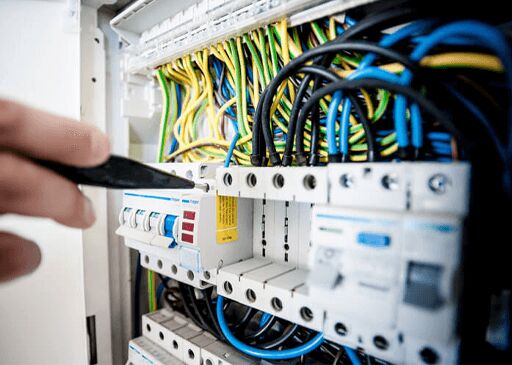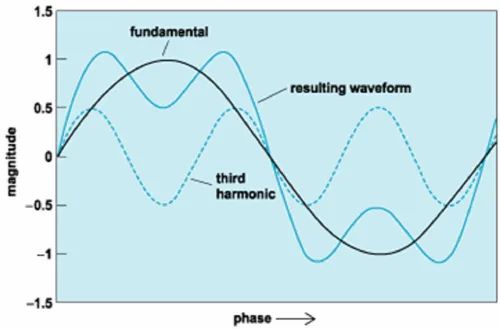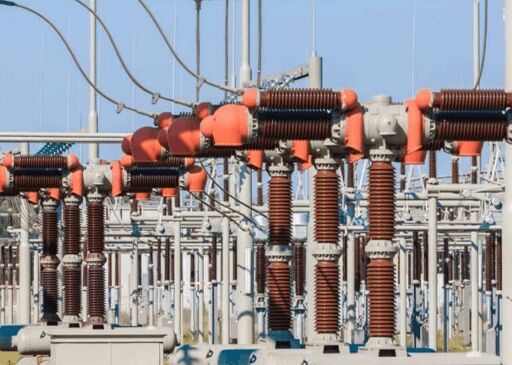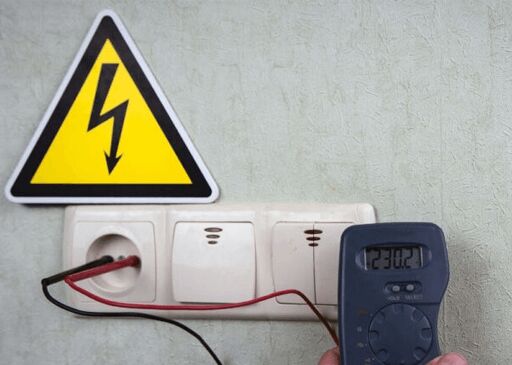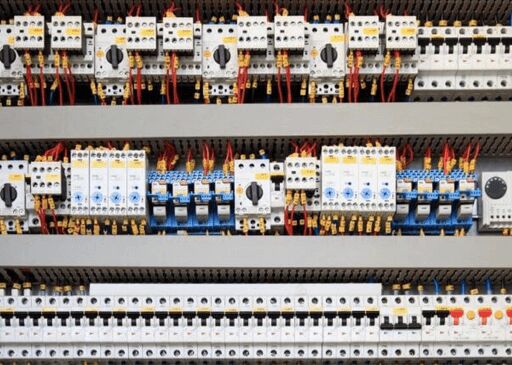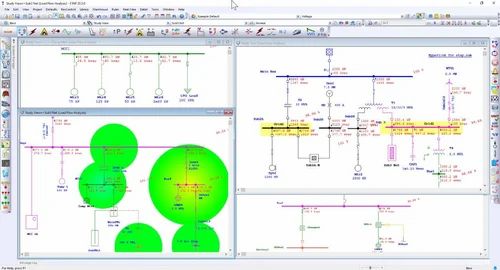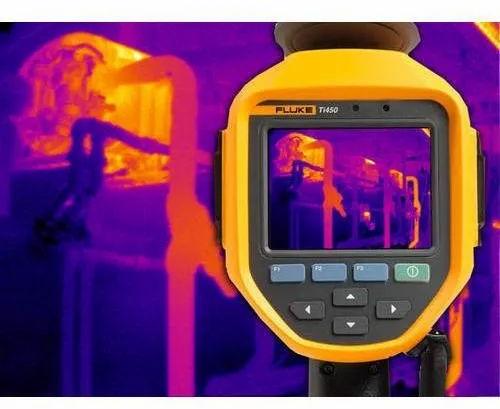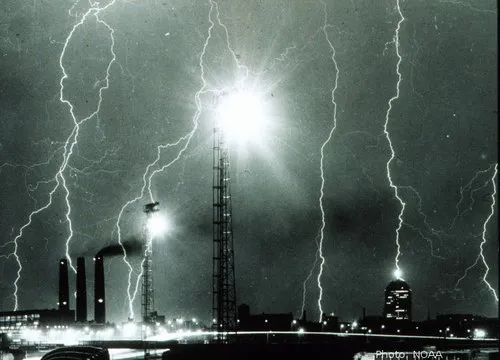Baner, Pune, Maharashtra
- GST NO. : 27AAPCS5761E1ZZ
Electrical Services
Leading of Electrical Failure Analysis Service, Comprehensive Power Quality Audit & Electrical Safety Audit Service, Comprehensive Harmonic Analysis & Reactive Power Compensation Study, Electrical Failure Root Cause Analysis Service, Electrical Hazard Detection Service, Electrical Power System Analysis Service, Electrical Safety Audit Service, Electrical Transient Analysis Service, ETAP Based System Stability Grid Stability, Infrared Thermography Testing Service, Lightning Protection System Study & Earthing System Study and Reactive Power Compensation Service from Pune.
Preferred Buyer From
| Location | Anywhere in India |
Electrical failure analysis service is the method of analyzing the causes of electrical failures by collecting data and inspecting the systems. The analysis is critical for figuring out the internal damages in the systems that are not easy to detect. Analysis of the data provides valuable and detailed insights into the system damage condition, improves yield, determines the root cause of failure, extrapolates life expectancy, and improves the reliability of the systems. It is vital to perform electrical failure analysis so that manufacturing businesses can improve the conditions of existing systems and develop new and more reliable system designs for the future.
Preferred Buyer From
| Location | Anywhere in India |
This Electrical study involves site inspection by Electrical expert & collection of infrastructure details along with recording of various electrical parameters using high end Power Quality Analyzers. Study starts from the point of connection with utility till down stream end loads. This is an investigative study to understand impact of power quality & identify the reasons for disturbances/ distortion. The site maintenance teams are involved to understand problem areas.
The focus of this study is to enhance the Electrical safety of a facility and its compliance to safety standard. This is a comprehensive study conducted by Expert Electrical Engineers to validate existing Electrical System & its components as per connected load. This study also helps identify the Hazard in the system & provides remedial solutions for the same. It also includes checking of Compliance to applicable Electrical Safety standards.
Preferred Buyer From
| Location | Anywhere in India |
Harmonic Analysis is Targeted to identify the harmonic distortion within the distribution & its effects on overall power quality & compliance to IEEE 519 standard. This Electrical study involves recording of Harmonic distortion using high end Power Quality Analysers right from the point of connection with utility till downstream end loads. This is an investigative study to understand impact of distortion & identify the reasons for the distortion.
Reactive power compensation is a critical area as it can impact the monthly power bill for any industry. We conduct detailed Reactive Power Compensation study & understand the requirement of various loads as well as the associated losses. The reactive power compensation technology used & its impact on Harmonic distortion is checked. The data collected is analysed by Experts & is also simulated on E-tap software to design optimized solution.
Preferred Buyer From
| Location | Anywhere in India |
This is a special study involving identification of reasons for recurrent Electrical failures or faults causing down time or loss of production/ revenue. This is a comprehensive study conducted by Subject Matter Expert and team of Expert Electrical Engineers to identify the reason for failure. Use of high end testing equipements under guidance of Experts with expertise is involved in this study.
Preferred Buyer From
| Location | Anywhere in India |
Electrical safety is a common practice for workers who handle and maintain electrically powered equipment. It is a set of guidelines that they adhere to in order to mitigate electrical hazards and prevent their dangerous effects in the event of an incident. Failure to follow electrical safety precautions can result in accidents, misses, or even deaths and injuries.
Electrical Hazard Detection (EHD) is a non-destructive electrical system test. EHDs are used to detect hidden electrical problems that could lead to a fire. Electrical Hazard Detection Services are done to reduce the risk of a fire.
Electricity is a hazard because it has the possibility of causing severe damage, but if managed correctly, the chances of harm are minimal. However, the severity of electrical hazards when things go wrong can be fatal or life-changing.
Electricity at Work Regulations 1989 applies to any work activity conducted in close proximity to electrical systems where danger may exist. As a result, the scope of the law does not apply only to electricians and electrical engineers, but also to mechanical engineers, construction workers, production staff, and office employees whose jobs may expose them to the dangers of electricity.
Preferred Buyer From
| Location | Anywhere in India |
Hospitals, corporate buildings, schools, and industrial or commercial facilities of all sizes rely on a consistent, dependable, and well-maintained electrical power system. Even minor electrical failures or faults can have disastrous consequences, such as extensive and costly downtime of company operations, damage to critical equipment or inventory in the event of a power outage, and the cost of locating and repairing the damaged electrical equipment itself.
Power systems used in commercial or industrial buildings are critical to the needs of those who work in and benefit from these structures. Building owners may request a power system study, also known as a power system analysis, to ensure the proper operation of a power system in both normal and unusual circumstances. These studies can be extremely useful in improving the overall operation and efficiency of any facility.
Electrical Power system analyses are an important part of the design of an electrical power system. Calculations and simulations are used to ensure that the electrical system, including system components, is properly specified to perform as intended, withstand expected stress, and be protected against failures.
An Electrical Power Study is an Arc Flash Study Pro Electrical System Analysis that includes any or all of the diagnostic or preventative services listed below. The studies listed below are the most important and necessary for you to get your electrical system properly installed and reliable. We may recommend a few additional types of electrical power diagnostic services after reviewing your facility and discussing your plans, but we can go over those later. The power studies below should cover the majority of the bases.
Multiple studies are conducted as part of a power system analysis to examine how a power system responds to various events over time. These engineering investigations are all compiled into a single final, comprehensive report for a complete power system analysis.
A power system analysis is typically classified as transient, dynamic, or static. Electrical Transient studies examine a very short time, usually 1 to 2 seconds. A dynamic study may yield results in just a few seconds or minutes. Static analysis examines the system over a longer period of time.
It is important to note that a full power system analysis does not usually occur all at once. Some aspects of a power system study may only need to be performed every 5 years or so, whereas others may require more frequent testing. You can consult with a professional to determine which aspects of a power system analysis may benefit your facility.
Preferred Buyer From
| Location | Anywhere in India |
Electricity is now an essential part of our daily lives, and we realize how important it is when there is a brief power outage. With the rapid growth of industries and commercial space in recent years, we have seen an exponential increase in the number of electrical accidents. Accidents not only result in a loss of business, but also a loss of life, brand image, business continuity, and employee confidence in the workplace. It is past time to conduct an Electrical Safety Audit regularly to check the status of electrical systems.
The purpose of an electrical safety audit is to examine the safety and security of any industrial unit or organization’s electrical installations. It is a useful tool for identifying areas of risk, hazards, and potential accidents in plants, as well as deterioration of standards and determining actions to minimize hazards. An electrical safety audit is carried out by conducting an investigation, inspection, testing, and evaluation of any entity that is equipped with electrical equipment.
Electrical Safety Audits are conducted for Electrical Hazard Detection Services that are performed by experienced professionals who help clients reduce risk and ensure compliance with applicable Safety Standards and Regulations.
A safety assessment aims to maintain a safe workplace through hazard identification and removal, to ensure employees are following the most effective safety procedures, and to ensure the facility, equipment, and operations meet the required local, state, and federal, health, and safety requirements, as well as best industry business Furthermore, safety audits, ensure that the necessary administrative records supporting the required health, safety, and medical activities are kept.
Preferred Buyer From
| Location | Anywhere in India |
Electrical transients in power systems can occur from a variety of sources and have a negative impact on the equipment and reliability of the power system. It is best to be aware of potential sources in your facility and to take precautions against them.
Electrical transients are sudden and short-lived surges of energy induced in power or data and communication lines in a utility or any facility. They have extremely high voltages that drive large amounts of current in an electrical circuit for periods ranging from less than a microsecond to several milliseconds. As a result, the system transitions from a stable to a momentarily disturbed state and back again. The steady-state condition refers to the stable state that exists after the transient has passed.
Most electrical transients are not of great magnitude, but their impact on the performance of circuits and interrupting or protective devices is critical. Transients in power systems take the path of least resistance to ground and can cause circuit components and semiconductor devices to overheat, resulting in malfunction and failure. Furthermore, a significant number of these electrical transients are large enough to cause the insulation of the power system’s equipment to fail.
During a transient, the adverse conditions can be extremely damaging to power system protection equipment and switchgear. Their impact on devices varies according to the device and its location on the power system. As a result, power system engineers constantly devise methods and means to limit the magnitude of transients produced and control their effects on operating equipment.
Preferred Buyer From
| Location | Anywhere in India |
Service offering provided to plants having large Internal Electrical network or having Co-generation to understand the impact of electrical disturbances on internal distribution as well as on Grid. To identify the causes of these disturbances & solutions to ensure trouble free generation & supply of power.
Preferred Buyer From
| Location | Anywhere in India |
IR Thermogrphy is a Predictive Maintenance activity carries out using high resolution Thermal Camera to identify the hot spots in the Electrical distribution system. The analysis is done to identify the exact reason for the heating
Preferred Buyer From
| Location | Anywhere in India |
The focus of this study is to enhance the Electrical safety of a facility against lightening strikes and achieve compliance to IS 62305.
After implementation, SASPPL will prepare a compliance statement and set of as built drawings for inhouse and statutory records.
SASPPL also undertakes a short training of maintenance team and a classroom tour of IS 62305 to make them self sufficient on requirements of standard and how they are achieved in plant.
The whole process is executed under guidance of a chartered electrical engineer with over 30 years of field experience.
Preferred Buyer From
| Location | Anywhere in India |
The term Reactive power compensation services and Study is described as the regulation and control of the reactive power to improve the performance of alternating current or AC. The problem of reactive power compensation is generally related to load and voltage support. The goals of load support are to increase the value of the system power factor, balance the real power drawn from the alternating current supply, improve voltage regulation, and eliminate current harmonic components produced by large and fluctuating nonlinear industrial loads. Voltage support is typically required to reduce voltage fluctuation at a transmission line terminal. By increasing the maximum active power that can be transmitted, reactive power compensation in transmission systems improves the stability of the ac system.
Because reactive power has a higher capacity than is actually required, it is best to generate reactive power only when it is needed. If the reactive power is generated by a power plant, all of the equipment associated with the distribution system must be aligned with it.
Reactive power is a necessary component of electric power systems. Without reactive power, rotation can’t be initiated in rotating machines and active power cannot be transmitted through transmission lines. There are numerous advantages to being able to control or compensate for reactive power. Positive and/or negative VArs are added or injected into the power system during the reactive power compensation process to achieve voltage control.
Reactive power is a necessary component of electric power systems. Without reactive power, rotation can’t be initiated in rotating machines and active power cannot be transmitted through transmission lines. There are numerous advantages to being able to control or compensate for reactive power. Positive and/or negative VArs are added or injected into the power system during the reactive power compensation process to achieve voltage control. Harmonic distortions in the power system were briefly discussed, as were the problems caused by non-linear loads. Power compensation study also addresses the issues with harmonic analysis of the system.


